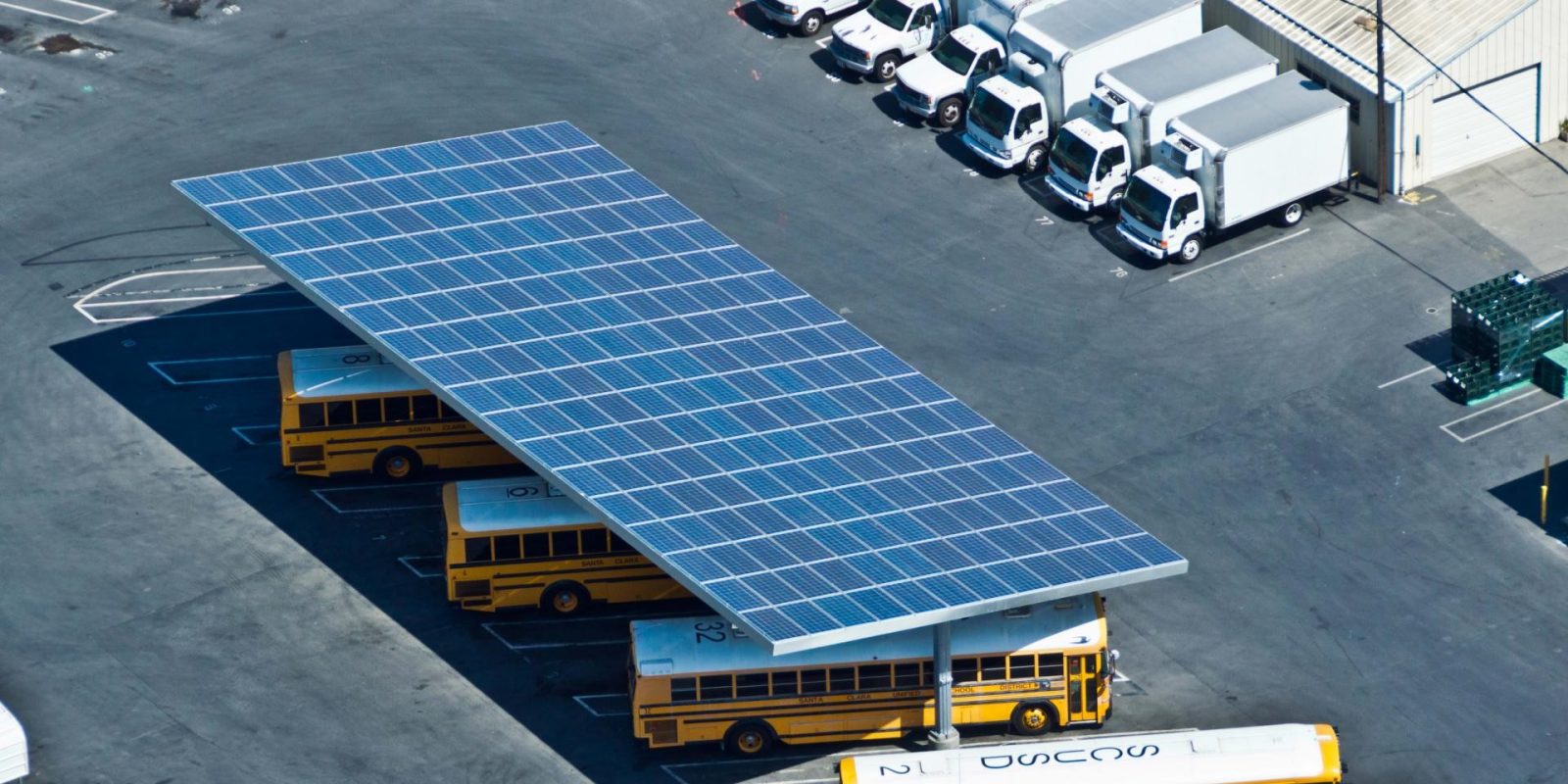
Since 2014, solar capacity at K-12 schools has more than quadrupled across the US, according to a new report from clean energy nonprofit Generation180.
The “Brighter Future: A Study of Solar on K-12 Schools” report highlights that over 6.2 million students – more than 1 in 9 – now attend schools powered by solar. In 2023 alone, more than 800 schools added solar panels, meaning that at least one school went solar every single day during the 2022-23 school year.
“The benefits of solar energy are now reaching a broad range of schools across the country, including those in under-resourced communities that stand to gain the most from the cost savings and educational opportunities that solar technology provides. We want all schools and communities, regardless of their size, geography, or wealth, to have access to affordable, clean energy,” says Tish Tablan, the report’s lead author and senior director of Generation180’s Electrify Our Schools Program.
Most of these schools are funding their solar projects through third-party ownership models, making it easier to bypass the hurdle of upfront costs. The Inflation Reduction Act has also made it more affordable for schools to deploy clean energy by offering tax credits, paid as cash reimbursements, for panels, battery storage, and other clean technologies.
Some standout findings from the “Brighter Future” report include:
- K-12 schools across the country now generate 1,814 megawatts (MW) of solar power – enough to power over 330,000 households or the entire city of Denver.
- The top states leading the charge in school solar capacity are California, New Jersey, Arizona, Massachusetts, and Connecticut.
- States like Minnesota, Maryland, and Pennsylvania are innovating with state-funded grants to help schools adopt solar power.
Beyond just cutting energy bills, schools with solar are investing savings back into students and communities. For example, Wayne County Public Schools in West Virginia, a region historically dependent on coal, plans to install 10,000 solar panels across all its schools by 2025. They’re also offering apprenticeships to high school students, giving them hands-on experience in installing solar panels on their own campuses.
Pairing solar with battery storage is another trend that helps schools boost climate resilience. Around 40 schools in six states have added battery storage to manage their energy use and provide backup power. California, with its long-running storage incentive program, leads the way, with 75% of these battery projects.
Schools are also joining community solar projects that extend benefits beyond their campuses. In Denver, for instance, solar canopies at schools are not only powering the buildings but also providing affordable, clean electricity to low-income families in the area. This collaboration between the City of Denver and Denver Public Schools is currently helping 44 local families save an estimated 64% on their household electricity bills.
Top comment by Grant
Think of the savings for the school system when buses run on solar generated energy. And the schools themselves run on solar energy. The projects would pay for themselves in a few years, and then that money could go to teachers and programs that really need funding.
“While it’s exciting to see the growth in solar adoption, too many schools are still missing out on the many benefits that solar energy brings to students, communities, and the climate. We hope this report will inspire more schools to explore what’s possible in their districts and join the clean energy movement,” says Stuart Gardner, executive director of Generation180.
Read more: Oakland is now first in the US to deploy a 100% electric school bus fleet – and it’s V2G
If you live in an area that has frequent natural disaster events, and are interested in making your home more resilient to power outages, consider going solar and adding a battery storage system. To make sure you find a trusted, reliable solar installer near you that offers competitive pricing, check out EnergySage, a free service that makes it easy for you to go solar. They have hundreds of pre-vetted solar installers competing for your business, ensuring you get high quality solutions and save 20-30% compared to going it alone. Plus, it’s free to use and you won’t get sales calls until you select an installer and share your phone number with them.
Your personalized solar quotes are easy to compare online and you’ll get access to unbiased Energy Advisers to help you every step of the way. Get started here. –trusted affiliate link*
FTC: We use income earning auto affiliate links. More.






Comments